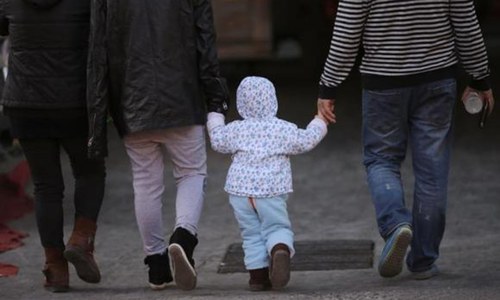BEIJING: China will ease family planning restrictions to allow all couples to have two children after decades of the strict one-child policy, the ruling Communist Party said on Thursday, a move aimed at alleviating demographic restraints on the economy.
The policy is a major liberalisation of the country's family planning restrictions, already eased in late 2013 when Beijing said it would allow more families to have two children providing the parents met certain conditions.
A growing number of scholars had urged the government to reform the rules, introduced in the late 1970s to prevent population growth spiralling out of control, but now regarded as outdated and responsible for shrinking China's labour pool.
Read: China plans to change one-child policy
For the first time in decades the working age population fell in 2012, and China could be the first country in the world to get old before it gets rich.
The announcement was made at the close of a key Party meeting focused on financial reforms and maintaining growth between 2016 and 2020 amid concerns over the country's slowing economy.
Also read: China eases ‘one-child’ policy, ends labour camps
“China will allow all couples to have two children, abandoning its decades-long one-child policy,” the official Xinhua new agency said in a short report.
There were no immediate details on the new policy or a timeframe for implementation.
Under the 2013 reform, couples in which one parent is an only child were allowed to have a second child. Critics said the relaxation of rules was too little, and too late to redress substantial negative effects of the one-child policy on the economy and society.
Couples who flout family planning laws in China are, at minimum, fined, some lose their jobs, and in some cases mothers are forced to abort their babies or be sterilised.
Wang Feng, a leading expert on demographic and social change in China, called the change an “historic event” that would change the world but said the challenges of China's aging society would remain.
“It's an event that we have been waiting for for a generation, but it is one we have had to wait much too long for,” Wang said.
“It won't have any impact on the issue of the aging society, but it will change the character of many young families,” Wang said.











































